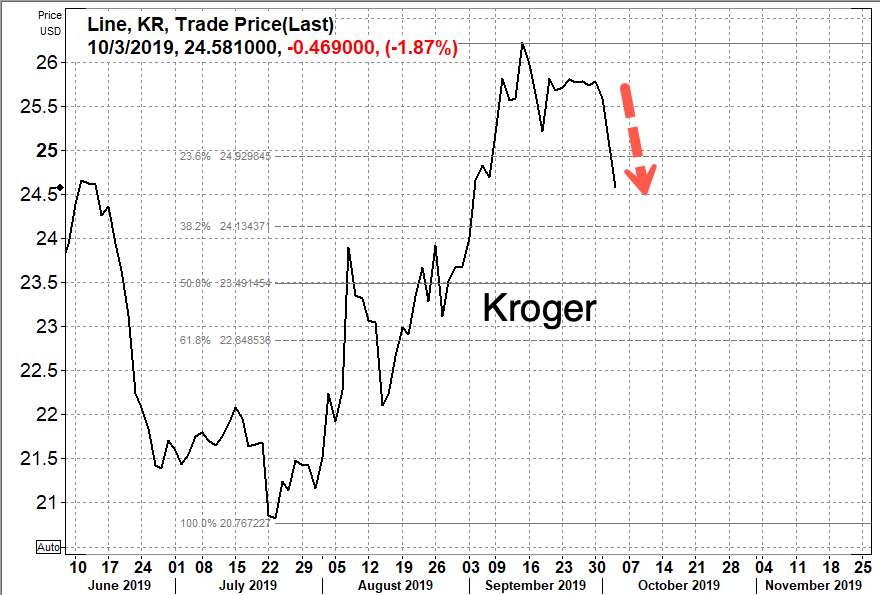There is a key sentence in this story that, at least to my mind, explains MOST if not all of Kroger’s inability to compete. Now, we all know Kroger has pricing problems, i.e. their prices are not daily competitive if they have a large competitor (HEB) nearby but, that is not their main problem. Their main problem is the same as that of the auto companies. It can be found in this sentence,
“Kroger, unlike Amazon and Walmart, has a unionized workforce, that has caused tremendous margin compression as the company struggles with unwanted expenses tied to union contracts.”
Imagine that? Unions. Who would’ve guessed? And what are the unions doing for their employees? Driving another business out of business so that none of their members have a job. Genius union bosses. Of course, the real genius bosses work at Kroger. Allowing a union and not getting rid of it even now shows real brilliance.
Honestly, some things are just not that hard. You really have to wonder what it takes for people to learn.
And It Begins: Kroger Lays Off Hundreds Amid Failed Turnaround
Earlier this month, Kroger Co. announced a disappointing 2Q19 earnings call after CEO Rodney McMullen warned that the grocery chain wouldn’t reconfirm its three-year forecast to hit profit targets amid a turnaround effort. As a result, Kroger said this week that it would start the process of laying off hundreds of employees across the family of grocery stores it owns.
“As part of ongoing talent management, many store operating divisions are evaluating middle management roles and team structures with an eye toward keeping resources close to the customer,” a Kroger spokesperson said in a statement. “Store divisions operate independently, but all of them are taking steps to ensure they have the right talent in the right store leadership positions.”
Kroger didn’t specify how many job cuts were anticipated — but sources told CNBC that it’s likely to be in the hundreds.
The company’s turnaround effort is showing signs of distress, and macroeconomic headwinds in the economy could produce a weakening consumer that would contribute to declining retail sales next year.
The grocery chain, which also owns Harris Teeter, Ralphs, Fred Meyer, has 443,000 full-time and part-time employees across its stores as of fiscal 2018.
The layoffs were announced as the company increases technology investments into e-commerce, automation, artificial intelligence, last-mile deliveries, and meal kits. Kroger is trying to stay ahead or at least compete with Amazon and Walmart.
The profit warning earlier this month from McMullen sent shares lower in the last 14 sessions, down nearly 4.5%.
Labor costs continue to be a significant issue for Kroger, as unions continue to gain ground ahead of the 2020 Election, CNBC noted. Kroger, unlike Amazon and Walmart, has a unionized workforce, that has caused tremendous margin compression as the company struggles with unwanted expenses tied to union contracts.
“Our financial results continue to be pressured by inefficient healthcare and pension costs, which some of our competitors do not face,” CFO Gary Millerchip told analysts earlier this month.
Kroger’s failed turnaround into the possibility of a recession in 2020 could result in more job cuts.

